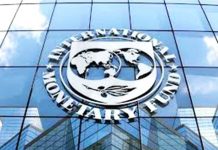The African Center for Economic Transformation, ACET, has held a roundtable dialogue on exploring opportunities for domestication of the AfCFTA protocols to drive trade and investment in Africa.
The dialogue was meant to address the status of domestication of specific provisions of the AfCFTA protocols related to free movement of persons, including labor mobility.
The dialogue also discussed how the continental trade is implemented, the strength and flaws of it as well as review the outcomes to date and how effective it is in terms of AfCFTA objectives, while identifying key areas for support and improvement.
The dialogue brought together relevant stakeholders in Ghana’s trade industry.
A Senior Director, Research, Policy & Programs at ACET, Dr. Edward Brown expressed worry that intra-African trade remains very low as it accounts for 17% of Africa’s exports when compared to other regions.
“11 years now and we’re still at a very low level of intra-Africa trade. It is important that we try and continue to collaborate given the endowments in each of these countries. The importance of trying to compete and ensure that your private sector is resilient and competitive is very important and that can only be done through intra-Africa trade.”
A Senior Policy Analyst at ACET, George Boateng indicated that the AfCFTA when rightly implemented and supported will bring several prospects to the Africa continent.
“What the trade deal provides us with is that Africans can really speak with one voice that means it gives us an upper hand in negotiations when we go to the table with others outside the continent, and this for me is the most important thing that the trade deal offers. I mean when you promote free trade we are looking at it being able to address the skills gaps in each country.
We’re also looking at labour markets trying to solve the problem of skills mismatch and also curb the phenomenon of the brain drain which is now very prominent on the continent.”
A Principal Researcher at ACET, Louis Yaw Afful revealed some findings of a research ACET conducted under the continental trade.
“There is no harmonization of Institutions. I will wish that whatever is being done by the immigration ministry in Ghana will be replicated by Nigeria, other state parties and that is where the difficulty is. Specifically, in Ghana there is a lack of inter institutional cooperation.”









